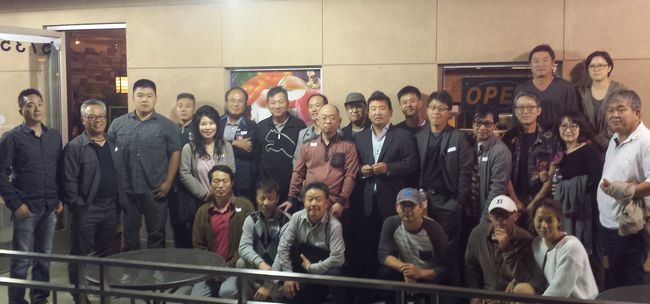
The owners of Korean-run Japanese restaurants in the U.S. won the lawsuit filed against them for allegedly wrongfully labeling the names of the fish two years ago.
Korean-American Japanese Food Association president Jimmy Koh said that the lawsuit filed by Long Beach-based lawyer Wade Miller two and a half years ago was recently dismissed.
“Miller filed the lawsuit claiming that the Korean-run Japanese restaurants labeled escolar as a white tune,” said Koh. “We came to the conclusion that his lawsuit was solely aimed towards making money for himself, so we responded collectively. In the end, we won after two years.”
The lawsuit was triggered by the customary practices of some Korean businesses labeling escolar as white tuna. Escolar is a type of mackerel, which at the time was generally classified as white tuna. That is why some restaurants and markets sold escolar as white tuna.
In 2014, the law aimed towards correcting the wrong information on food provided to the public was passed in California (SB1138). The law stipulated that businesses subject to such practice could be due for a fine of up to $1,000 and a year of imprisonment.
That is also when Miller began to request Korean businesses to start providing compensations. In the following year, he even filed a lawsuit against four Korean businesses. On top of that, it has been revealed that he requested about 300 Korean-run businesses to provide compensations.
Taken aback by Miller’s legal action, about 60 Korean owners of Japanese restaurants founded the Korean-American Japanese Food Association. After two years of their efforts, Miller finally withdrew his lawsuit. Miller also agreed to withdraw his request for compensations.
“It was clearly an ill-advised lawsuit that aimed to generate money,” said lawyer Daniel Lee of Ross Wersching & Wolcott LLP. “That’s what I emphasized during the trial and the judge understood it sufficiently. That eventually worked against the plaintiff.”
Lee added: “Miller realized that things were going against him and chose to withdraw the lawsuit. It’s even more meaningful that he agreed to not file a lawsuit against businesses that are in the Korean-American Japanese Food Association. About 10 businesses that were threatened by Miller also reached a settlement with him. This case once again reminds us that public rights could be protected from illegal lawsuits as long as it is properly dealt with.”
By Hyunwoo Kim




